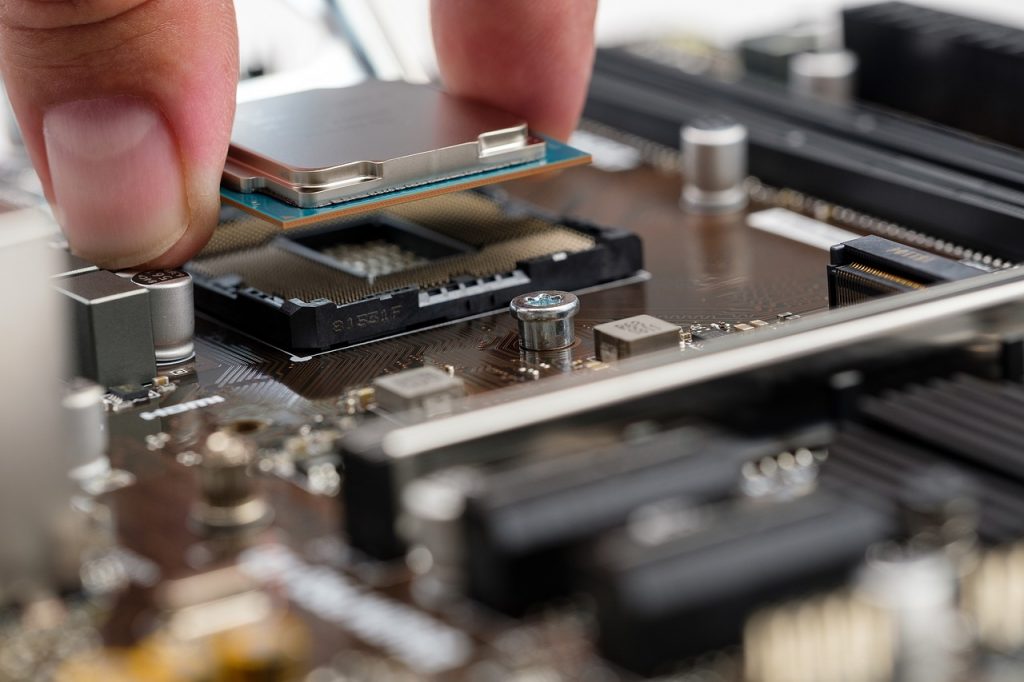Why The US Is Doubling Down With Its Allies To Boost Computer Chip Production Domestically
The United States is teaming up with South Korea, Japan, and Taiwan to boost its chip manufacturing to better compete with China.
This article is more than 2 years old
Since the pandemic began, there’s been an ongoing chip production issue worldwide. As more chips were manufactured to meet the demand for excessive computer, laptop, and electronic purchasing, other industries were not obtaining enough. Car companies famously were affected by this problem, unable to produce vehicles with limited chip supplies.
The Biden Administration made many propositions in 2022 to mitigate the ongoing issue. The president and his cohorts wanted to funnel more money into local production, which would hopefully offset the frustrating supply chain constraints. Now, the US is forming unexpected alliances with countries to manufacture computer chips on a worldwide scale.
It’s likely that the United States, South Korea, Japan, and Taiwan will join manufacturing forces to beat out its one significant competitor: China. All four countries have made substantial moves to eliminate the computer chip crisis and start their own local facilities for chip production. The unprecedented partnership between western and eastern countries showcases the importance of this technology to international economies and the dire need to compete with China’s unparalleled technological output.
So why are chips so vital to a country’s economic strength? With devices and technology integrated heavily into modern society, semiconductors and other pieces needed for operable phones, computers, and cars are undeniably essential. Semiconductors are also linked to new AI technology and even weaponry, making chip production a crucial matter for a nation’s security and defense.

The semiconductor supply chain issue is more complex than requiring more manufacturing facilities. Chip production is accomplished by multiple factors, including design, physical construction, packaging, delivery, and necessary tools. The COVID pandemic has hindered these areas, making it more difficult to solve by solely opening up local factories.
Excessive demand has made it almost impossible for chip manufacturers to stabilize the shortage. For instance, only one firm in the world can produce the intricate equipment and machines that make high-grade chips that many modern technologies require. ASML, a Netherlands-based firm, produces these EUV machines that have dominated the chip production industry for quite some time.
The EUV machines are intricate, humungous, and require thousands of components to complete them. ASML sells these gigantic mechanisms to tech companies like Samsung and Intel, but their supplies, like other technology firms, have been extremely limited since the pandemic. In 2021, the firm was only capable of selling 31 machines worldwide, which isn’t enough to meet the demand for computer chips.
Though the Netherlands is the only company that has this chip production equipment, other countries are responsible for dominating another specific part of the manufacturing process. Both Taiwan and South Kora make up 80% of the chip foundries worldwide, which are factories where chips are manufactured from other companies’ designs. Since these two countries have concentrated on this market heavily, it’s sensible for nations like the US to want to form an alliance with them.
Countries worldwide dominating specific sectors of chip production have made it even harder to produce enough chips to meet growing technological demand. If nations don’t collaborate and exchange their concentrations, tech manufacturing could come to a devastating halt.



